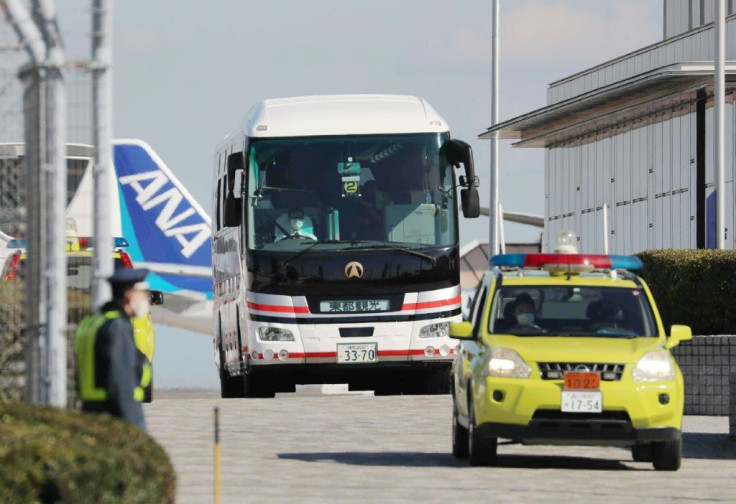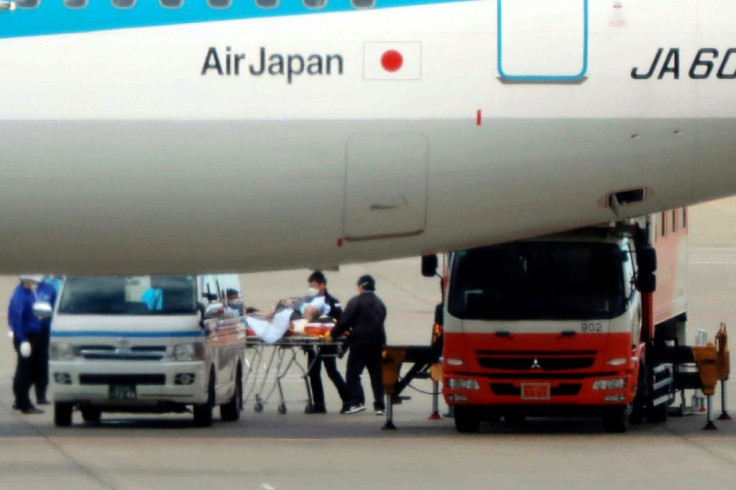Japan Tells Citizens To Avoid Non-essential Travel To China

Japan on Friday warned citizens against non-essential travel to China, and fast-tracked new rules including limits on entering the country as it tries to contain the spread of a deadly coronavirus strain.
Japan's Prime Minister Shinzo Abe said the travel warning for China would be raised to level two on the country's four-point system, advising people to "avoid travel that is not urgent or is not necessary".
The measure also affects Hong Kong and Macau.
Japan had already raised its travel alert for Hubei province, where the outbreak began, to a level three, warning against any travel to the region.
The top end of the scale advises against all travel and calls for immediate evacuation.
The foreign ministry also issued a statement urging Japanese citizens in China to take safety measures, including possibly returning home temporarily.
The government announced new entry restrictions, barring foreigners who have been to Hubei in the last two weeks. Chinese with passports issued from Hubei will also be barred, though there may be exceptions for people who are not living in the region.
The moves come as the government said it would speed up implementation of a decision to label the new virus a level two "designated infectious disease".
The designation allows the forcible hospitalisation of those infected and gives immigration authorities the power to prevent people with the virus from entering the country.
The measures were due to come into effect from February 7, but will now be moved up to February 1, Abe told parliament, saying the government would also look at restricting entry for cases where infection was suspected but not confirmed.
Concern is growing in Japan about the spread of the virus in the country, where 17 cases have been identified so far.

Three new cases were reported on Friday, including a tour guide who came in contact with Chinese tourists from Wuhan. She worked on the same bus as a driver and second tour guide who both contracted the virus without travelling to China.
The two other new cases were in people repatriated on a flight that arrived in Japan on Thursday.
The cases in Japan include both instances of apparent human-to-human transmission and asymptomatic infection, sparking renewed criticism of the government's handling of the crisis, particularly its minimal quarantine measures for evacuees from Wuhan.
Unlike other countries, which are opting to isolate returning citizens for between 72 hours and two weeks, Japan has simply asked evacuees to "self-quarantine".
Japanese officials say there is no current legal basis for them to forcibly isolate people who have not tested positive for the virus -- and that will not change with the implementation of the new rules from Saturday.
There was also outrage after it emerged that two people on the first evacuation flight from Wuhan initially refused to be tested for the virus, and were allowed to return home after being advised to avoid public transport and monitor their health.
The government has said it cannot force people to take the test, and on Thursday night health ministry officials said the two individuals had now changed their minds and would take the test.
The coronavirus is currently labelled a level two "designated infectious disease". Diseases like Ebola are given a higher level designation that allows for stronger measures.
Of the 206 people who arrived on the first flight on Wednesday, 12 have been hospitalised, with all but two of the other passengers staying at a government-designated hotel in Chiba outside Tokyo.
A second evacuation flight carrying 210 people arrived on Thursday, with 26 passengers hospitalised after checks on board and at a health facility after landing.
The remaining passengers are staying at government-designated accommodation, and all the passengers on the second flight were tested for the new virus, officials said.
A third plane carrying 149 people arrived on Friday and all on board were tested for the virus, with ten passengers hospitalised with various symptoms.
© Copyright AFP 2024. All rights reserved.




















